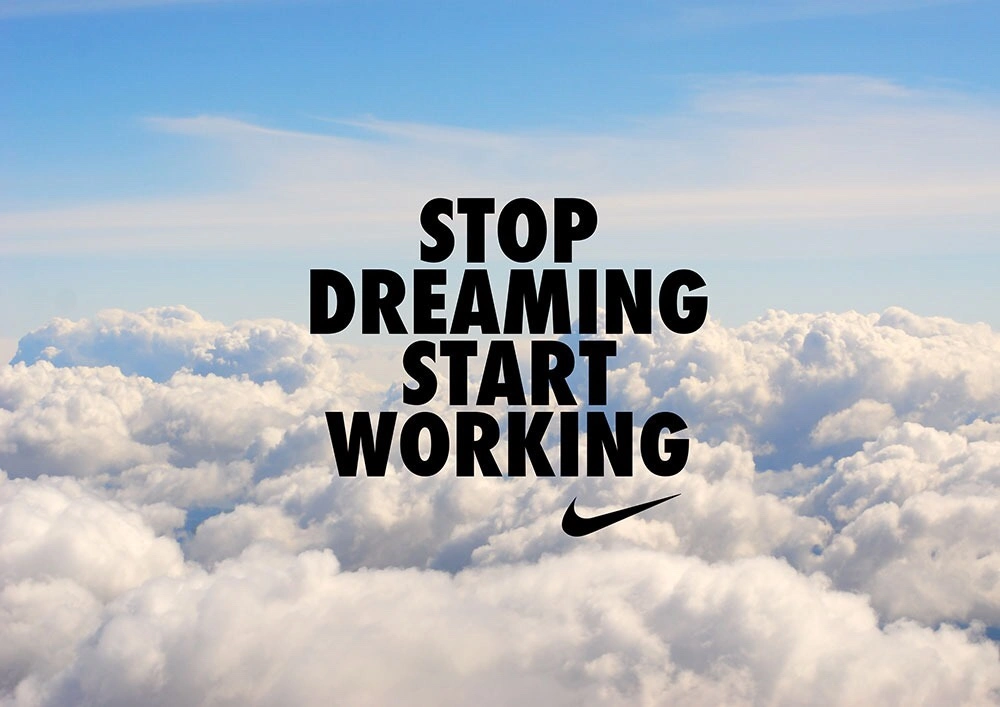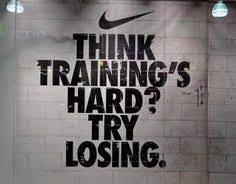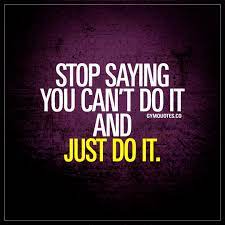I'm pretty much an open book, I try to share both the good and the bad, even if that leaves me feeling vulnerable at times. I figure if I put myself out there, maybe someone can use my experience in their own lives in a way that helps them. I posted a couple of weeks ago about coming back from an injury (more on that here) and really, getting back to my training routine hadn't been going well at all. It took a lot for me to get back on track, I'm sharing here why and how, so that it might help others in a similar situation.
I was medically cleared to get back to training about 4 months ago. Wide-eyed and eager, I dusted off my training plan, checked in with my coach, and then...nothing. Sure, I swam here and there, stretched in the kitchen while waiting for my morning coffee to brew, and sometimes pilates in the evening before bed. But really...NOTHING. Weeks passed and my good intentions didn't materialize into actual training. I just couldn't seem to get back on track, it was like the wiring in my brain before the accident had come unravelled. Or maybe it was never really there but I had been managing it well somehow. I would think about my day's training plan, intend to do it, stress about it, not start it, the day would slip by, and I'd have to re-calibrate and promise myself to do better the next day. But honestly, most of the time I didn't do better.
And, any efforts I did make to train seemed to prove to myself that I really shouldn't. Swimming hurt the rib attachment at the sternum, I'd get muscle spasms and nerve pain for hours afterwards, sometimes I'd have to sleep it off because nothing else really helped. At evening club swim practice one night, I watched with a weary eye as the guy next to me in the lane swam breaststroke, fearful that his whip-kicking foot would accidentally hit my ribcage, I imagined ribs popping off my sternum like cheap wooden chopsticks being snapped apart. On the car ride home, I realized I was actually terrified to move again, to be out there in the world, exposed. I was even more aware of my mind's hold over my recovery.
As the weeks carried on, I felt worse and worse about myself. What was wrong with me? Was I somehow now weak, unwilling, uncommitted, lazy? Did I even still want this, where was my drive and motivation? Maybe I wasn't even an athlete anymore, maybe I shouldn't even be trying at all, imposter syndrome set in. I felt broken, guilty, annoyed.
And then came possibly the most well-meaning but truly worst advice ever from a friend: "well if you just start, you'll be doing it, and then you'll be fine". Well, geez, hadn't already thought of that one. Not helpful, at least in my case.
"Just do it" may actually deepen the rut for some of us
Apparently, I just needed to do it, then I'd be doing it. This sort of thinking was popularized largely by Nike's "Just Do It" campaign, launched in 1988, 25 years ago. The slogan conveys the notion that coming to action is a straightforward thing - forget your reasons, your excuses, your problems, and "just do" the thing you need to get done. Catchy words, great marketing, but is it always good advice to be giving others?
The slogan's not entirely wrong, you DO need to do the things in order to succeed at your goal. You need to move, you need to train, you need consistency, you need to get to a point where you're physically and mentally ready. If you can tell yourself "just do it" and that works for you and gets you going, then great, you've got this all figured out. But what about the rest of us, though, who are already having a hard time getting started in the first place?
Truthfully, I haven't always been great with training consistency. It's something I have to work really hard at, and I want to succeed at. I've learned one reason for this is how my brain is wired, I've got a really "busy brain", which doesn't mean that I prioritize other things over training, but at times I have so much going on in my head all at once that I have a really hard time keeping everything sorted out and end up prioritizing thoughts and actions based on what is actually critical to my existence at the time. I'm working on it, but things can go off the rails despite my best intentions, sometimes epically. Add that to the injury itself and the fear of being re-injured all over again, and you've got a near perfect shit storm.
So what's the problem for those of us that can't seem to "just do it" when the doing has stopped? What was wrong with me that I couldn't just clear a pathway and do the things I knew needed to be done? I kept thinking, it shouldn't really be all that hard.
Well for starters, "just do it" is simplistic and obvious advice, and not terribly helpful in situations like mine. Just get over it, just get it done. If it was that easy I'd already be doing it, so yeah thanks. You must be lazy then, unwilling to commit. I'm pretty sure that's not true, I know I can move mountains, but I don't seem to be able to get started. Well if you just did it, then you've have good habits and you'd never even want to stop. Wow, never thought of it that way, I must really suck then because that ain't working.

Straight-forward doesn't work for everyone, and "just do it" overlooks the complexity of how some people work, of the challenges they might face in their lives and the extent to which they're able to manage them. It oversimplifies that for some people, stepping to action when there's a barrier in the way is complicated and can feel insurmountable. In my experience, "just do it" is an approach most often spoken by people who have not really truly struggled, or whose struggles are long past.
I'm especially mindful of how the "just do it" mindset impacts athletes who also have to deal with things like chronic low-self esteem, trauma, depression, ADHD, autism, and so forth. In both my work and personal lives, I've supported those with legit challenges they are trying to manage in order to even live well. Hell, I've got some of that shit rolling around in my own life too, and let me tell you - it is fucking powerful. It's not always about choice in these cases, or any kind of weakness of the mind, it's about your wiring. The "just do it" approach is particularly ineffective here, and can be especially damaging because it deepens that inner sense of being at fault for not already having it all figured out. Sure, some people are really just lazy and don't actually want to succeed badly enough to put the work in, but that's likely not the case for many of us who do. I prefer to stand on the side of trying to lift people up, not judge them down.
In retrospect, I think that being able to tell yourself "just do it" is an end goal, it's where you need to get to in order to execute to your training plan, but sometimes it's really shitty advice to give someone else when they aren't in that headspace yet or when they have legit stuff going on about how they function or how their brains are wired. Getting the advice to "just get started, then you'll be doing it" actually made me feel worse about myself, like I was defective for not having been able to in the first place. And the more I thought about my inability to "just do" my training, the worse I felt about myself, the lower my self-esteem got, the harder and harder it seemed, the deeper I fell into the rut of inaction. Shame spiralling is some seriously toxic shit, especially when it's you doing it to yourself.
Laying down new pathways to tread heavily upon
Habitual actions are like pathways for the brain; the more you perform the action, the more you travel down that pathway, the easier it becomes to find your way each time. But the same is equally true about not taking action, in that once you fall into a pattern of excuses, negative thoughts, busy brain or self-protection, those too wear down their own pathways, and as time passes they become part of habitual inaction in exactly the same way. And the longer you're travelling those pathways of inaction, the harder it it can be to set a new course to try to get back on track with the doing.
In my particular situation, I needed to stop expecting the old pathways I once knew and relied on to get my training done to suddenly reappear, and instead I created new pathways and new ways of working that were better suited to who I was in that moment, as I was as someone recovering from an injury that affected my body and my headspace. Ones that my busy brain could easily recognize, even when I was feeling unmotivated or a bit scattered but still needed to get my training done.
Here's what I did to get back to doing all the many training things:
1) Understand and know that I was capable, and that I did in fact want to take action
Frustrated, I stepped back one day and asked myself:
"Do I still even want this, honestly?" Yes, I did.
"Am I capable of doing this?" Fuck yes I know I can train well, swim long.
"Are you still scared of hurting, of moving the wrong way?" Yeah, actually a lot.
Busy brain + injury + fear = paralysis (not lazy or unmotivated). Ah ha, now we were getting somewhere. My physio clinic assigned me to someone experienced with my particular injury. I recounted about how my return to the water really sucked, I was often in pain with muscle spasms for hours afterwards, had to lay very still with a heating pad pressed to my rib cage. Her response: "oh yes, it's going to keep sucking a lot, and probably for quite some time, but you need to be moving for your mind and body to work together again, and you'll eventually be fine with time, movement will hurt but it will also help you heal." She was practical instead of trying to be inspirational and motivational, and I was able to work with that. I understood I wasn't broken or defective, just a little fucked up for awhile.
2) Develop strategies that enabled me to start doing things
I had to balance the physical recovery with creating new pathways at the same time. I remembered a book I'd read the year before, The Brave Athlete: Calm the F*ck Down and Rise to the Occasion by Simon Marshall. The book is centred around the idea that you don’t have one brain - you have three; your ancient Chimp brain that keeps you alive, your modern Professor brain that navigates the civilized world, and your Computer brain that accesses your memories and runs your habits (good and bad). The Chimp is that little voice in your head that latches on to worry, doubt, fear and tries to talk you into staying safe by not doing things. The Professor, on the other hand, is a planner, a doer. Things can go south real fast whenever the Chimp is fighting for control, and in my case, he was winning hands down without barely even trying.
The Brave Athlete put forward a set of steps to perform, effectively providing you with a pattern that mimics the outcomes and feelings of habit and discipline, for when you're struggling to get there on your own. The steps break it down the doing into manageable "tasks", to be performed on autopilot. If you're a habit-former, over time they turn into discipline, and eventually habit. If you're not a habit former, whether you struggle with motivation or you have brain wiring functional challenges (ahem, you ADHD, PTSD, autistic peeps out there), then these "tasks" can become a routine that you perform again and again. No matter which case you fall under, the outcome of a habit or a routine is the same, and that's what you're after - I stopped trying to force myself to model something that wasn't natural to me, and started working with how I was actually shaped.
The "tasks" are simple and include preparation (packing up my workout gear the night before), establishing a trigger to set things in motion (morning alarm), a ritual of performing the necessary actions (I get up and set things in motion), and a reward (a little flavour in my coffee) to celebrate and reinforce positive feelings about successfully having completed them. The reward isn't really necessary for me, but it's kinda fun.
If you'd like to know more about how the steps work, see this post.



















留言